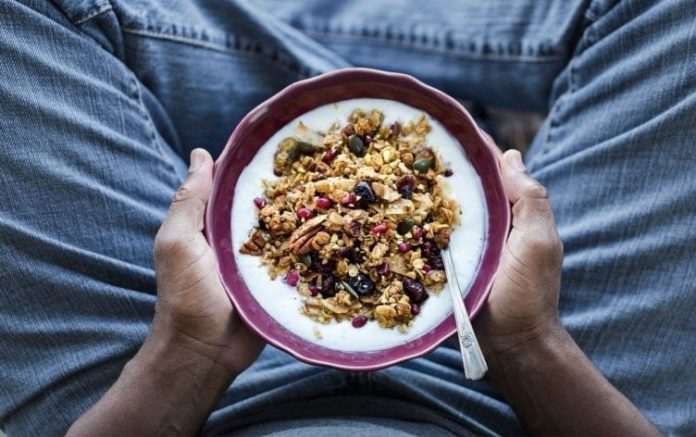
If you’ve been hearing talk about gut health lately, it’s for good reason — experts know it plays an important role in overall health. Previous research shows the bacteria and other microbes living in the gut (which makes up our microbiome), can influence the risk of developing heart disease and Type 2 diabetes and even help athletic performance. Moreover, the food you eat affects which microbes populate your gut, and the latest research shows gut microbes can also influence how much visceral fat (aka belly fat) you have.
THE RESEARCH
Your individualized diet influences the presence or absence of microbes in your gut even more than genetic factors do, according to a recent study in the journal Nature Medicine. “We identified a set of microbes in our gut which are associated with specific dietary patterns and foods, as well as health outcomes,” says study author Sarah Berry, PhD, senior lecturer of nutritional sciences at King’s College London. “These microbes can be split into a group of ‘good’ microbes, which are associated with healthy foods and dietary patterns and measures of good health, including lower body fat, lower inflammation, lower blood pressure and lower blood lipids.”
Researchers found the presence of two gut microbes in particular, Prevotella copri and Blastocystis, was associated with better blood sugar control and lower levels of dangerous visceral belly fat, which is tied to the “apple” body shape and an increased risk of diabetes and heart disease.
WHAT FOODS HELP (AND HARM) GUT BACTERIA?
The research also finds a clear separation of ‘good’ and ‘bad’ bugs based on the quality of the foods, says Berry. For example, beneficial gut microbes were linked with the consumption of a diet high in plant-based, high-fiber foods, as well as other nutrient-rich foods like yogurt and fish. Less beneficial gut microbes were associated with diets high in processed foods.
“Our study showed not all plant foods are associated with favorable microbes,” notes Berry. “Highly processed plant foods are actually associated with unfavorable microbes. The same is true for animal foods. Less-processed proteins, such as oily fish, are associated with favorable microbiomes while processed red meat, for example, is associated with unfavorable microbiomes.”
Many whole foods — including fruits, vegetables, nuts, beans and whole grains — are naturally high in fiber, a key nutrient that feeds good gut bacteria. When the same foods are processed, much of the fiber is stripped away, which negatively influences the diversity of the gut microbiome. Other research also links the presence of P. copri in the digestive tract with high-fiber diets.
Other foods can boost gut health, too. For example, polyphenols, which can be found in many fruits, tea, cocoa and red wine, are associated with a healthy microbiome, says Berry. Probiotics found in fermented foods such as kimchi and kefir also support good gut bacteria.
THE BOTTOM LINE
This latest research shows there’s great potential for modifying our microbiome through diet to positively impact health and help reduce visceral body fat. If you’re hoping to modify your diet to promote an optimal microbiome, swap out processed foods for whole foods as often as you can. “Aim to consume a wide variety of unprocessed plant-based foods each week,” says Berry. “A diet high in fiber, fruit, vegetables, nuts, seeds and fermented foods is associated with a healthy microbiome and favorable health.”
Unlock an experience that’s like having a dietitian, trainer and coach — right at your fingertips. Go Premium for expert guidance and exclusive tools that will help you reach your personal health goals.



















